
O Instituto Igarapé utiliza cookies e outras tecnologias semelhantes para melhorar a sua experiência, de acordo com a nossa Política de Privacidade e nossos Termos de Uso e, ao continuar navegando, você concorda com essas condições.
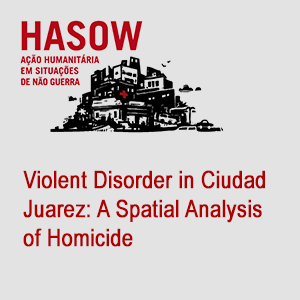
Violent Disorder in Ciudad Juarez: A Spatial Analysis of Homicide This HASOW Discussion Paper considers how demographic and socioeconomic factors correlate with homicidal violence in the context of Mexico´s “war on drugs”. We draw on Ciudad Juarez as a case study and social disorganization theory
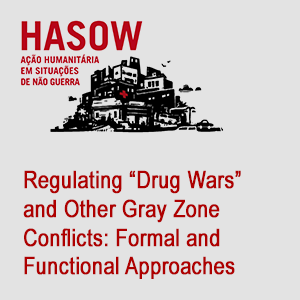
Regulating “Drug Wars” and Other Gray Zone Conflicts Academic debate on whether so-called “drug wars” can be classified as “armed conflicts” is more than just semantic. Indeed, the official designation of a situation as an armed conflict carries with it attendant rights and obligations applicable
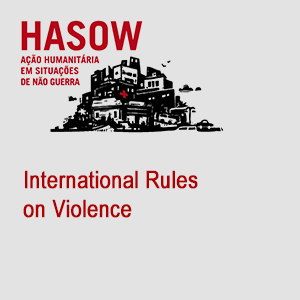
International Rules on Violence Violence is central to an understanding of human subjectivity and social interaction; modern subjectivity in particular cannot be understood without reference to organized violence. Modern societies have produced highly developed organizational mechanisms and ideological doctrines that allow for organized violence in
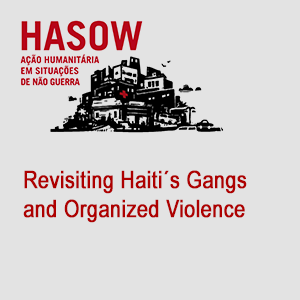
Revisiting Haiti’s Gangs and Organized Violence Though a preoccupation with organized violence has dominated much of the discourse on politics and development in Haiti, little research exists on Haiti’s urban gangs and insurgent groups. This paper examines urban gangs through intensive field research conducted over
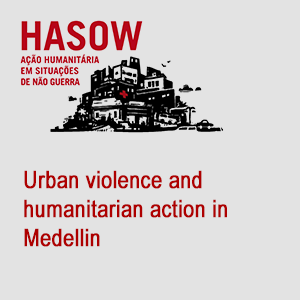
Urban violence and humanitarian action in Medellin Colombia has long experienced acute forms of political violence in and at the periphery of its major cities. Humanitarian agencies have also for decades protected civilians in order to minimize suffering within armed conflicts. Yet in recent years,
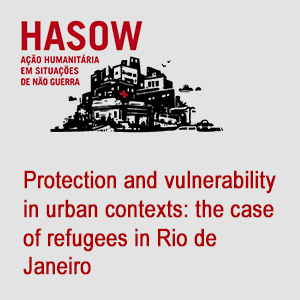
Protection and vulnerability in urban contexts: the case of refugees in Rio de Janeiro Part of the “humanitarian landscape” of cities in the Global South is increasingly marked by the presence of people internationally displaced by conflict and/or by massive violation of human rights. The
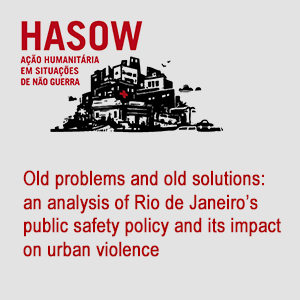
Old problems and old solutions: an analysis of Rio de Janeiro’s public safety policy and its impact on urban violenc The paper examines the trajectory of public safety policies in general, and of military policing programs in particular, in the city of Rio de Janeiro
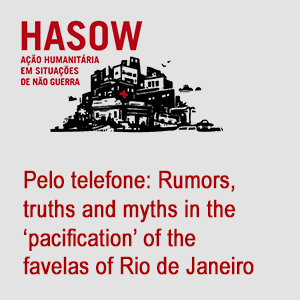
Pelo telefone: Rumors, truths and myths in the ‘pacification’ of the favelas of Rio de Janeiro The phenomenon of humanitarian engagement with situations of urban violence has attracted growing interest from academics, and practitioners in recent years. Yet the subject remains shrouded with myths and
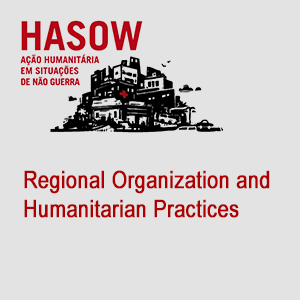
Regional Organizations and Humanitarian Practices In “Regional organizations and humanitarian practices”, the authors have conducted extensive research on organizational infrastructure of regional organizations and their provisions for humanitarian action, surveying their findings from the point of view of regional governance in order to understand the
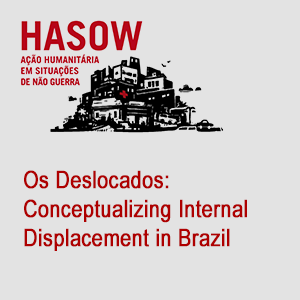
Os Deslocados: conceptualizing internal displacement in Brazil Whilst Brazil experiences comparatively high rates of violence and massive development interventions in its cities and hinterland, the scale and dynamics of cross-border or internal displacement are virtually unknown. There is a sparse literature on cross-border migration, whether voluntary or forced.
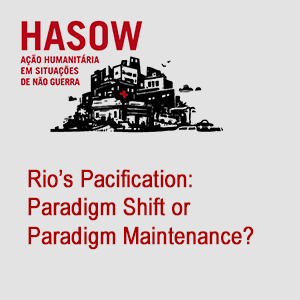
Rio’s Pacification: Paradigm Shift or Paradigm Maintenance? Reviewing the pacification literature, this paper exposes a mismatch between contemporary understandings of causes and drivers of urban violence and the methodological approaches applied to assess the success of pacification in the case of Rio de Janeiro. It
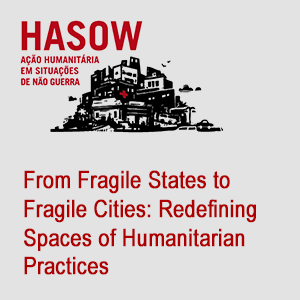
From Fragile States to Fragile Cities: Redefining Spaces of Humanitarian Practices There are widespread claims that cities are becoming places of growing violence and that as a result, some cities, or zones within urban areas, can be treated as conflict zones. This article traces some of the
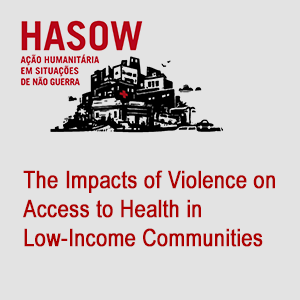
The Impacts of Violence on Access to Health in Low-Income Communities This HASOW Discussion Paper focuses on the relationships between urban violence and the supply and demand for health services, in selected neighborhoods of Rio de Janeiro. The HASOW paper is based on a household
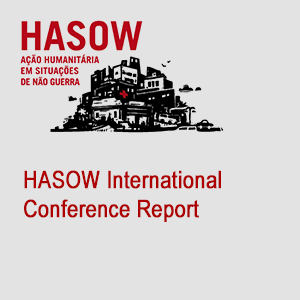
HASOW International Conference Report In March 2013, the first HASOW International Conference: “The Politics of Protection and the Future of Humanitarian Practices” took place at PUC-Rio. Its participants included doctors, lecturers and specialists in the topics relevant to the project. The objectives of the conference were

O Instituto Igarapé utiliza cookies e outras tecnologias semelhantes para melhorar a sua experiência, de acordo com a nossa Política de Privacidade e nossos Termos de Uso e, ao continuar navegando, você concorda com essas condições.

